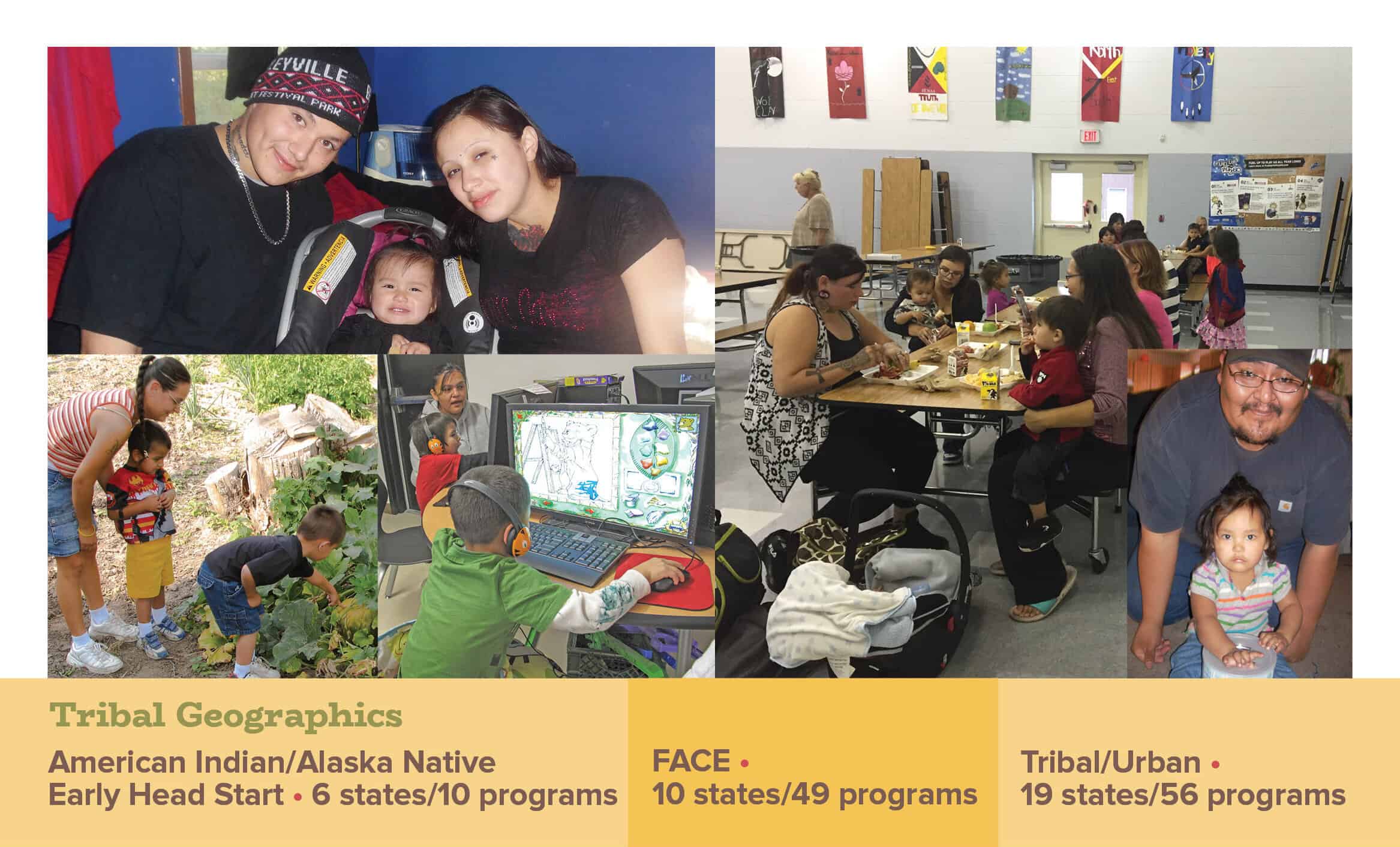Parents as Teachers uniquely addresses the distinct challenges facing American Indian and Alaska Native (AIAN) families by leveraging strengths of their communities. Our tribal affiliate programs are culturally specific, locally implemented and use community-based paraprofessionals, which support the local workforce development. The program honors cultural heritages, tribal teachings, practices, traditions, values, beliefs and incorporates diverse cultural strengths and language into every personal visit. Each Parents as Teachers tribal affiliate works with their tribal elders and leaders when starting-up and implementing a program. Programs are operated by Native staff and organizations. The Parents as Teachers model program is often enhanced to use Native language, incorporating traditional arts crafts, storytelling and connecting families to tribal events.

Strengthening Tribal Culture
Thanks to ongoing outreach and partnerships with Native American communities across the country, Parents as Teachers Tribal programs continue to flourish and expand. The Tribal Maternal, Infant, and Early Childhood Home Visiting (TMIECHV) initiative continues to provide grants to tribal organizations to develop, implement, and evaluate home visiting programs in American Indian and Alaska Native communities. In addition to new Tribal MIECHV grantees, Arizona, Nevada and North Dakota continue to allocate state MIECHV funding to tribal nations.
In 2018, a number of tribal affiliates received grants to expand services to families through the support of the Indigenous Project Launch. Three of our existing Parents as Teachers affiliates were awarded indigenous launch grants. The funding will allow tribes to develop quality early childhood systems with respect to their tribal cultures. Previous Project Launch grantees implementing Parents as Teachers in tribal communities demonstrated the need for resources in early childhood tribal programming. The Indigenous Project Launch Grants are designed specifically for tribes and U.S. territories.
Tribal expansion continues to take place through Region XI American Indian/Alaska Native Early Head Start programming. In 2018, we added two additional AI/AN programs as Early Head Start curriculum partners.
Family and Child Education

In 1990, the Bureau of Indian Education initiated the Family and Child Education (FACE) program, an integrated model for an American Indian early childhood education/parental involvement program that primarily serves pregnant women and families with children birth to 5 years of age by providing early childhood, parenting and adult education services. Today, FACE is a collaborative effort of the Bureau of Indian Education, Parents as Teachers National Center, and the National Center for Families Learning.
Over its 28-year history, approximately 20,500 American Indian families have participated in the program. Of the 25,750 children participating in FACE, 20,321 have received Parents as Teachers home-based services.
In 1990, the Bureau of Indian Education initiated the Family and Child Education (FACE) program, an integrated model for an American Indian early childhood education/parental involvement program that primarily serves pregnant women and families with children birth to 5 years of age by providing early childhood, parenting and adult education services. Today, FACE is a collaborative effort of the Bureau of Indian Education, Parents as Teachers National Center, and the National Center for Families Learning.
Over its 28-year history, approximately 20,500 American Indian families have participated in the program. Of the 25,750 children participating in FACE, 20,321 have received Parents as Teachers home-based services.

